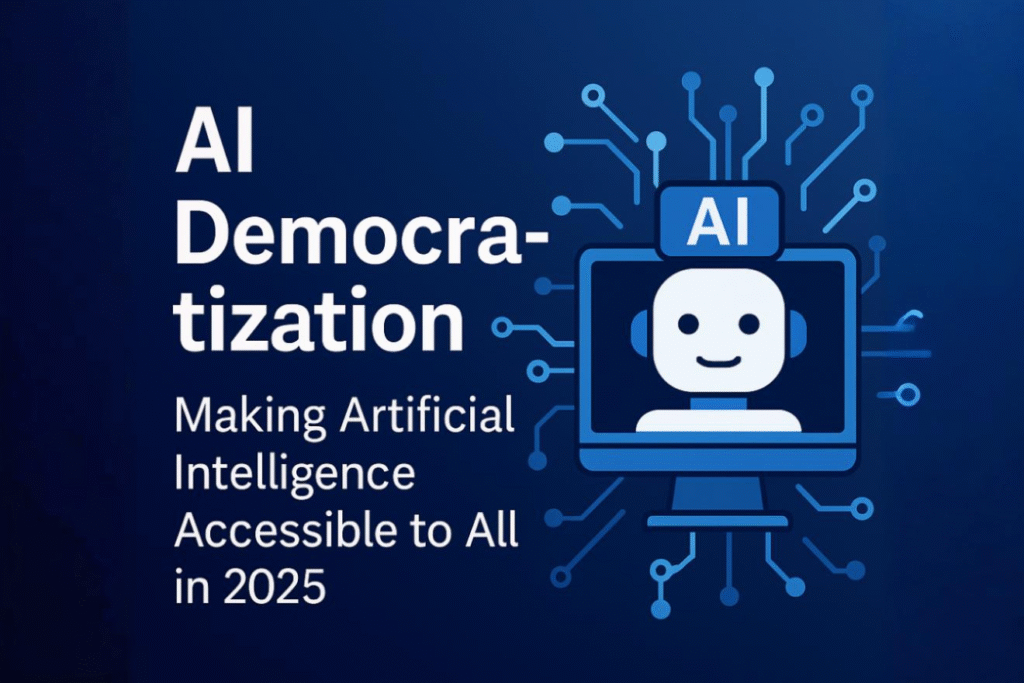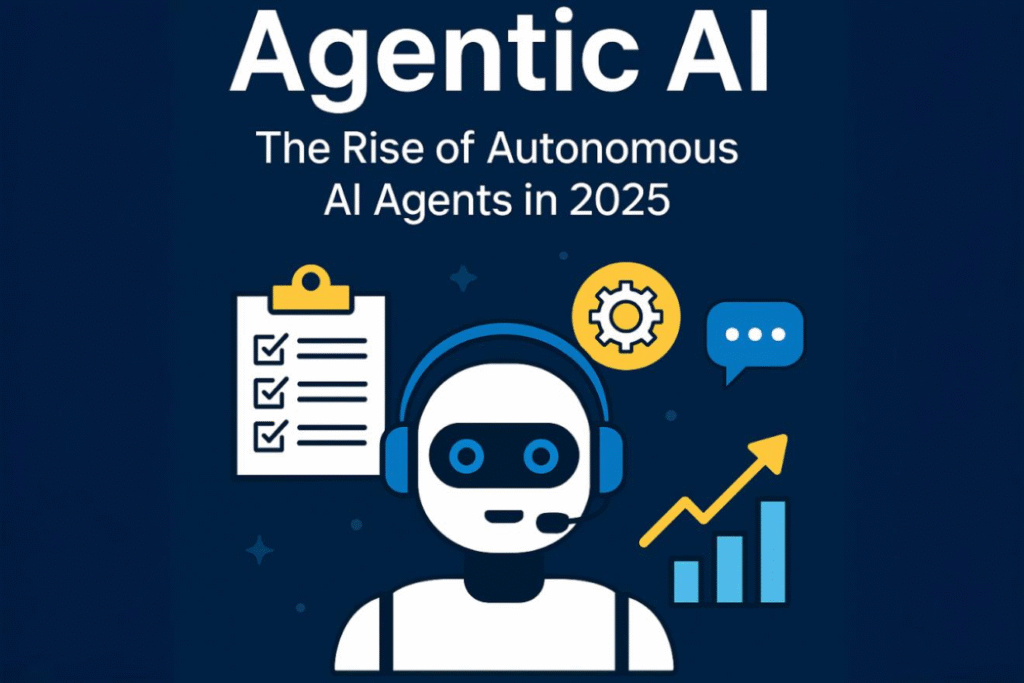
Introduction
Artificial Intelligence (AI) is no longer a futuristic concept reserved for tech giants and research labs. In 2025, AI has started to become a part of everyday life—from personalized content recommendations to smart assistants helping small business owners optimize their workflows. But what does it mean when we talk about “AI democratization”?
AI democratization refers to the process of making AI technologies accessible to a broader audience—beyond data scientists and engineers. It means giving individuals, startups, educators, and organizations the tools and knowledge to use AI effectively, affordably, and ethically.
In this blog, we’ll explore what AI democratization means, how it’s evolving, real-world use cases, the tools driving it, and the challenges and ethical concerns we must consider.
What Is AI Democratization?
AI democratization is the movement to remove the technical and financial barriers that previously limited AI development and adoption. This involves:
- User-friendly AI tools (like ChatGPT or Canva’s AI features)
- No-code/low-code platforms (like Microsoft Power Automate or Bubble)
- Open-source AI models (such as Hugging Face and Meta’s LLaMA)
- Educational resources to train non-tech users
- Cloud platforms offering affordable, scalable solutions
In short, it’s about giving everyone—not just large corporations—the power to harness artificial intelligence.
Why AI Democratization Matters
1. Empowers Small Businesses and Startups
AI tools can automate marketing, customer support, inventory tracking, and more—without needing to hire a developer. For instance, a local bakery can use ChatGPT to write engaging social media posts or generate customer feedback responses in seconds.
2. Promotes Innovation
By giving more people access to AI tools, we enable more ideas, startups, and inventions to emerge—especially in underrepresented communities and developing countries.
3. Bridges the Skill Gap
Through platforms like Kaggle, Google Cloud Skills Boost, and LinkedIn Learning, more individuals are learning AI and data skills without enrolling in a university.
4. Boosts Inclusion
AI should reflect the diversity of its users. Democratization allows more voices in AI development, leading to more inclusive datasets and better ethical outcomes.
Key Tools Powering AI Democratization in 2025
Here are some powerful tools and platforms making AI accessible to everyone:
1. ChatGPT by OpenAI
A conversational AI that helps with content creation, coding, learning, and business tasks.
How to Use:
- Visit chat.openai.com
- Create a free account
- Start chatting to write, research, or brainstorm ideas
2. Google Bard
Google’s AI assistant integrated with its ecosystem, enabling smarter searches, document drafting, and productivity boosts.
How to Use:
- Go to bard.google.com
- Sign in with your Google account
- Ask questions or assign tasks like summarizing articles
3. Microsoft Copilot
Integrated into Microsoft 365 (Word, Excel, PowerPoint), it helps users generate presentations, analyze spreadsheets, and write emails using AI.
How to Use:
- Requires Microsoft 365 subscription
- Access AI features directly inside the Office apps
4. Runway ML
Empowers creators to edit videos, generate visuals, and create content using generative AI—no editing experience required.
How to Use:
- Visit runwayml.com
- Sign up for a free trial
- Upload media and choose from AI-powered video tools
5. Hugging Face
A hub for open-source AI models in NLP, computer vision, and more. It’s a favorite among developers, researchers, and hobbyists.
How to Use:
- Go to huggingface.co
- Browse models or use the free Inference API
- Integrate into projects with easy-to-use code snippets
Real-World Use Cases
- Education: Teachers use AI tools to create quizzes, summarize lectures, or personalize content for different student levels.
- Healthcare: AI chatbots help patients book appointments or understand symptoms.
- E-commerce: Small brands use AI for customer service, personalized recommendations, and automated content generation.
- Media: Journalists use AI to write headlines, transcribe interviews, and detect fake news.
Challenges & Ethical Concerns
While democratization offers many benefits, it also raises challenges:
1. Bias in AI Models
Without diverse training data, AI systems can reinforce existing biases. This can be especially harmful in sensitive areas like hiring or law enforcement.
2. Misinformation & Deepfakes
More access to generative AI also means easier creation of false information or manipulated media.
3. Data Privacy
Democratized AI must still adhere to privacy laws like GDPR. Users often don’t realize how their data is being used or stored.
4. Skill Misuse
Easy access to powerful tools can be misused by bad actors if not paired with ethical education.
How to Contribute to Ethical AI Democratization
- Use AI responsibly: Understand the limitations and sources of your AI outputs.
- Educate others: Share tools and resources with peers and communities.
- Support open-source efforts: Projects like Hugging Face and EleutherAI rely on community contributions.
- Advocate for regulation: Push for transparent, ethical AI practices in both public and private sectors.
Conclusion
AI democratization is one of the most powerful trends shaping the future of work, education, creativity, and global development. As tools become easier to use and more affordable, we must also ensure that access is paired with education, responsibility, and ethical awareness.
In 2025 and beyond, everyone should have the opportunity to use AI—not just to consume it, but to shape it.

